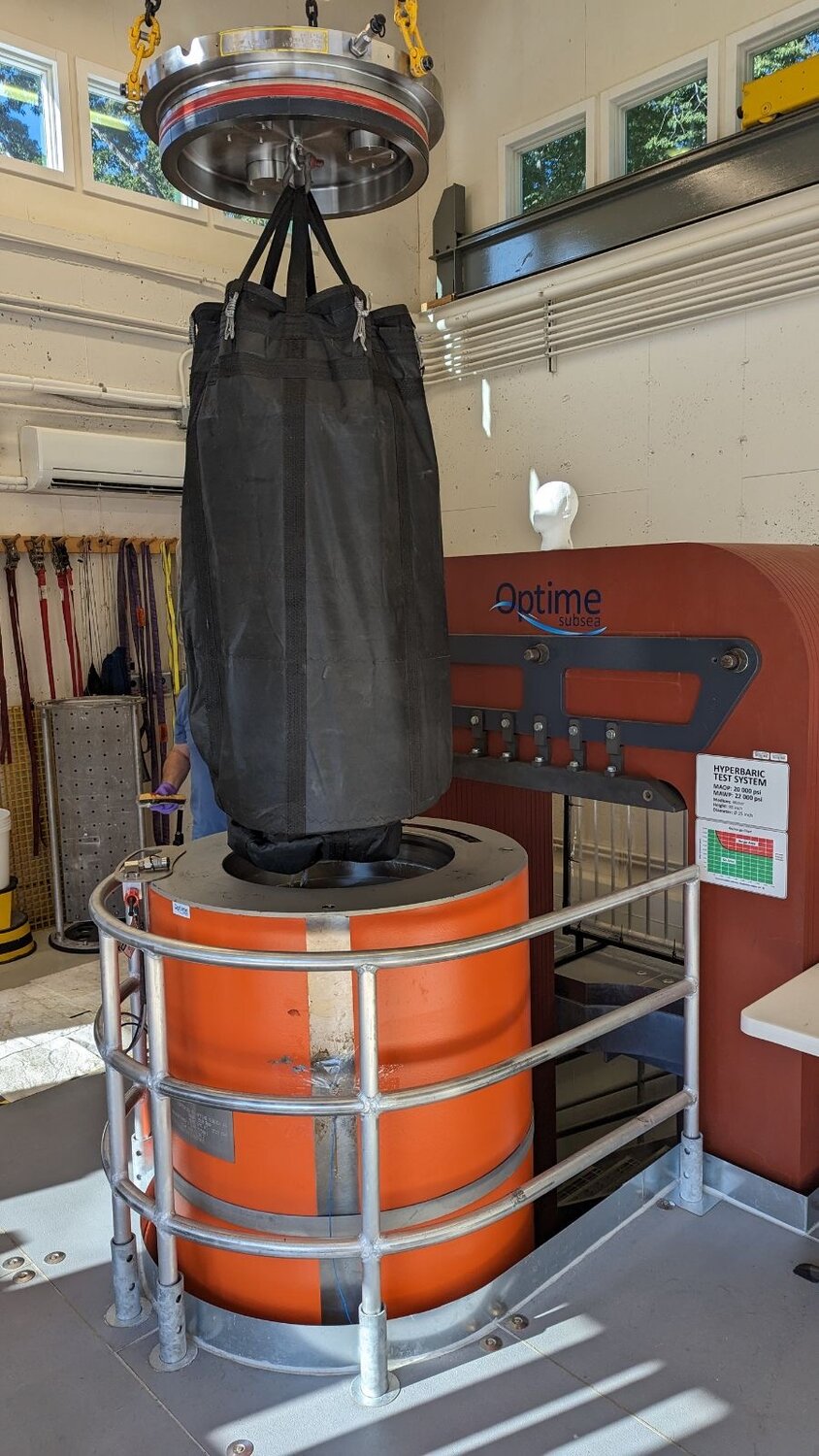This Bristol company is creating deep-diving composite vessels
Composite Energy Technologies (CET), a Bristol-based firm that engineers and manufactures complex composite vehicles, underwater pressure vessels.
This item is available in full to subscribers.
Please log in to continue |
Register to post eventsIf you'd like to post an event to our calendar, you can create a free account by clicking here. Note that free accounts do not have access to our subscriber-only content. |
Day pass subscribers
Are you a day pass subscriber who needs to log in? Click here to continue.
This Bristol company is creating deep-diving composite vessels
Composite Energy Technologies (CET), a Bristol-based firm that engineers and manufactures complex composite vehicles, underwater pressure vessels, and other specialized equipment for commercial and defense applications, has successfully tested and validated a pair of 21-inch diameter undersea carbon fiber pressure vessels.
Woods Hole Oceanographic Institute (WHOI) conducted the “Alvin test” on the vehicles, named for the crewed deep-ocean research submersible that was first launched in 1964. The testing included several simulated descents to 6,000 meters (around 20,000 feet), one for a prolonged period of time.
Sponsored by the Office of Naval Research (ONR), this multidisciplinary effort to engineer, manufacture and validate full ocean depth carbon fiber pressure vessels is another milestone on the path to including the composites industry as a member of the Defense-Critical Supply Chain.
“The successful outcome of this testing is an important milestone that demonstrates the capability of this technology,” said Chase Hogoboom, President of CET. “It’s exciting when we validate a solution that advances access to the next frontier of the ocean floor. Partnering with the undersea experts at ONR and Naval Undersea Warfare Center provided meaningful insight which allowed us to tailor the development to meet current, dual use needs.”
The undersea carbon fiber pressure vessels part of a class of undersea pressure vessels that CET is developing to solve the unique challenges of long duration missions in underwater environments.






